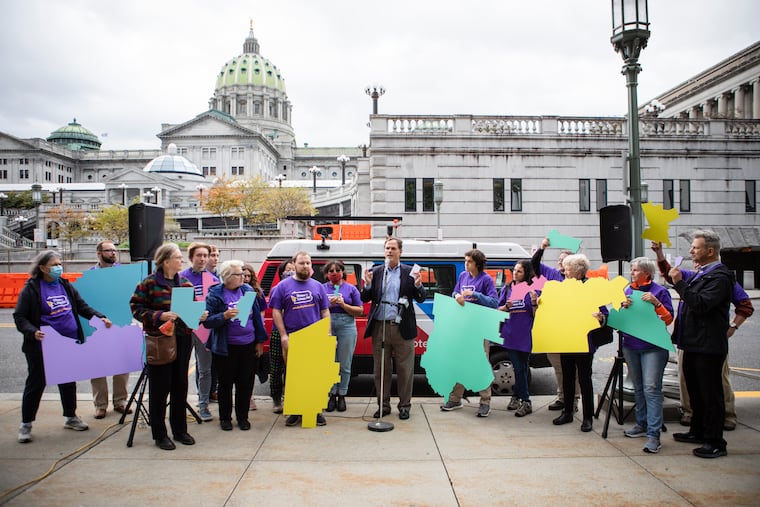End prison gerrymandering: Count people in Philly-run jails in their home districts | Opinion
The practice essentially robs their home communities of political power and transfers it to the areas where jails are located.

There is an often-overlooked wrinkle in how Philadelphia’s political boundaries are drawn that diminishes Black communities’ voting power. It is called prison gerrymandering.
A common practice when drawing political districts, prison gerrymandering occurs when people in prison are counted in the district of their prison, not their homes. Because the majority of people in prison are of color and from urban areas and are housed in facilities located in predominantly white, rural areas, the practice essentially robs their home communities of political power and transfers it to the areas where prisons are located.
A 2018 Villanova study stressed how the harm of prison gerrymandering — especially to Black and brown communities — has grown rapidly in the era of mass incarceration. This year, Philadelphia City Council and the Kenney administration have a unique chance to reexamine the city’s use of prison gerrymandering. We hope they do, and that they end this unfair practice.
» READ MORE: An end to sinister prison gerrymandering is a racial justice victory | Opinion
The Legislative Reapportionment Commission (LRC), the five-member body that draws state House and Senate districts, corrected this problem when it voted 3-2 in August to reallocate more than 30,000 people in state-run prisons back to their home communities for the purposes of state redistricting. Rep. Joanna McClinton (D., Phila.), the first woman of color ever to serve on the powerful LRC, championed this decision knowing its implications for racial equity.
With City Council’s deadline to redraw its own 10 districts fast approaching on Feb. 12, time is running out to address prison gerrymandering in our own city.
“Time is running out to address prison gerrymandering in our own city.”
First, councilmembers should utilize the same data approved by the LRC, which would reallocate more than 6,700 Philadelphians who were counted in state prisons back to their home districts.
But according to a preliminary report from the Committee of Seventy, those data don’t include the thousands of people counted by the census in the city-run jails on State Road in Northeast Philadelphia.
Just like at the state level, counting people in city-run jails artificially inflates the population — and consequently, the voting power — in the Northeast’s 6th Council District, where the jails are located. And just like at the state level, most of the individuals in these detention facilities are people of color being held in a political district that is predominantly white. Meanwhile, the population of our city jails is substantially more transient than those in state prisons, with many individuals spending weeks or months behind bars, rather than years. Some haven’t even been tried.
According to the Prison Policy Initiative, many local governments took action after the 2010 and 2000 Censuses to undo prison gerrymandering when redrawing local districts. City Council and the Kenney administration have a critical opportunity when redrawing Council districts to join this long list of jurisdictions by counting Philadelphians back home. This would be a step toward greater racial equity while setting a precedent so that future redistricting cycles will no longer unjustly deprive communities of their political representation.
Abu Edwards is the political action chair of NAACP Philadelphia chapter. Claire Shubik-Richards is the executive director of the Pennsylvania Prison Society.